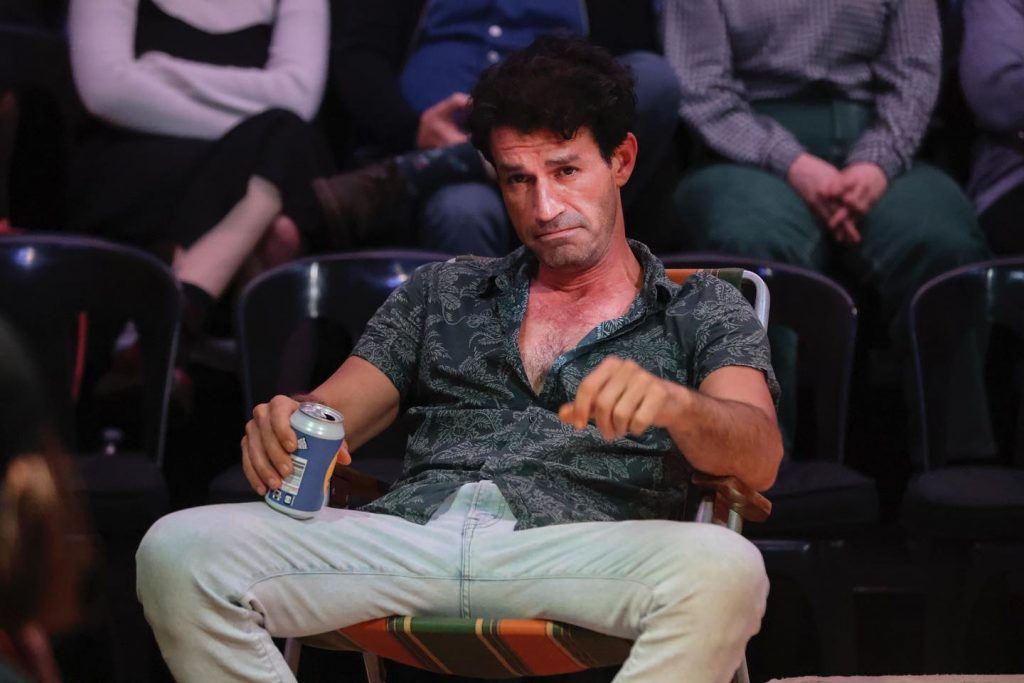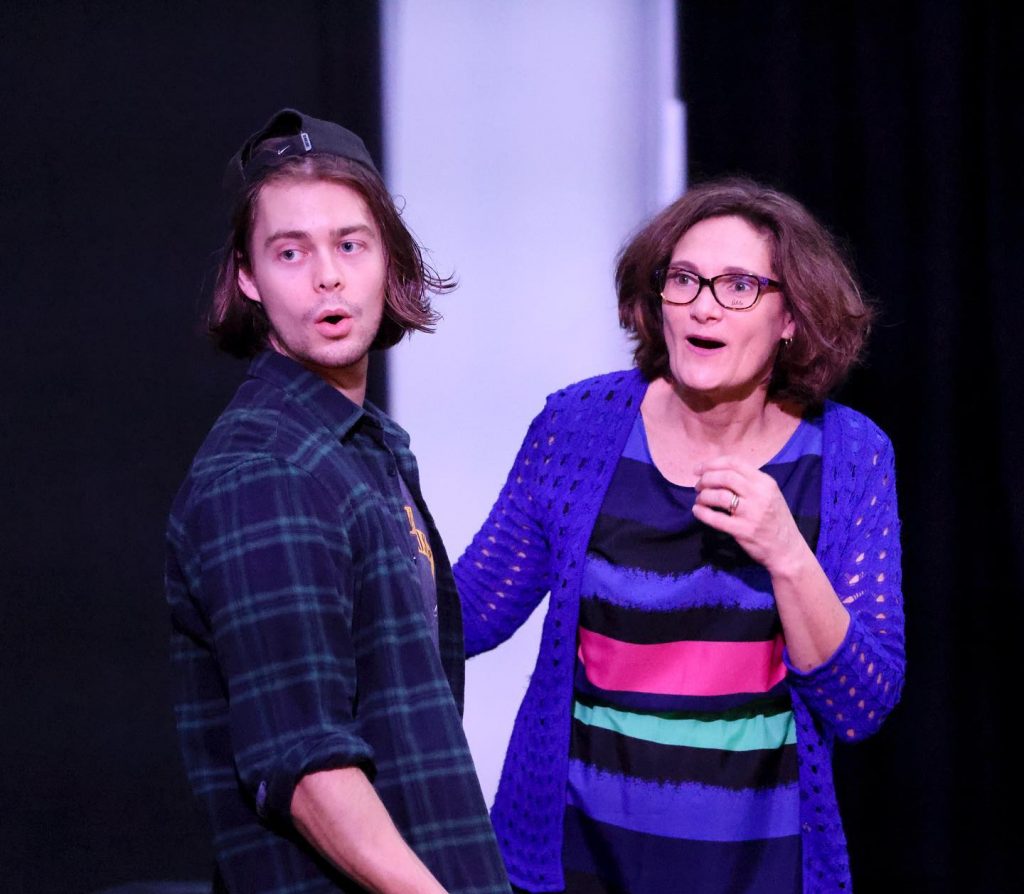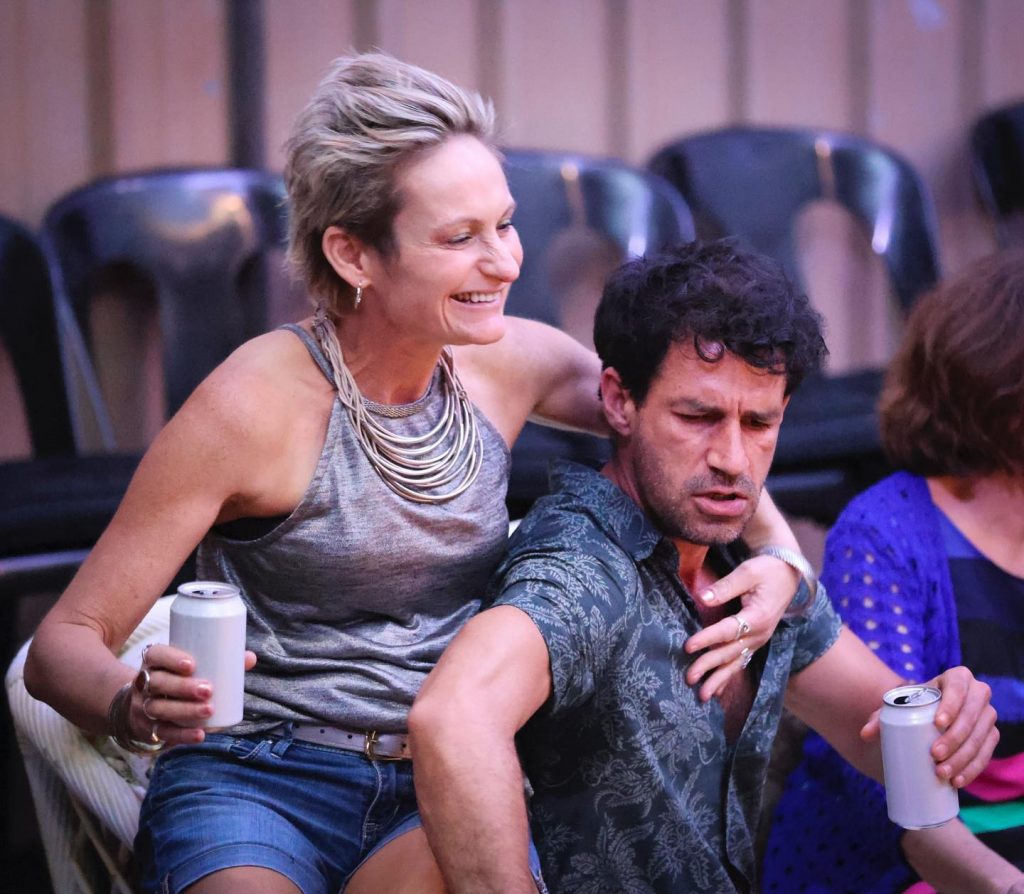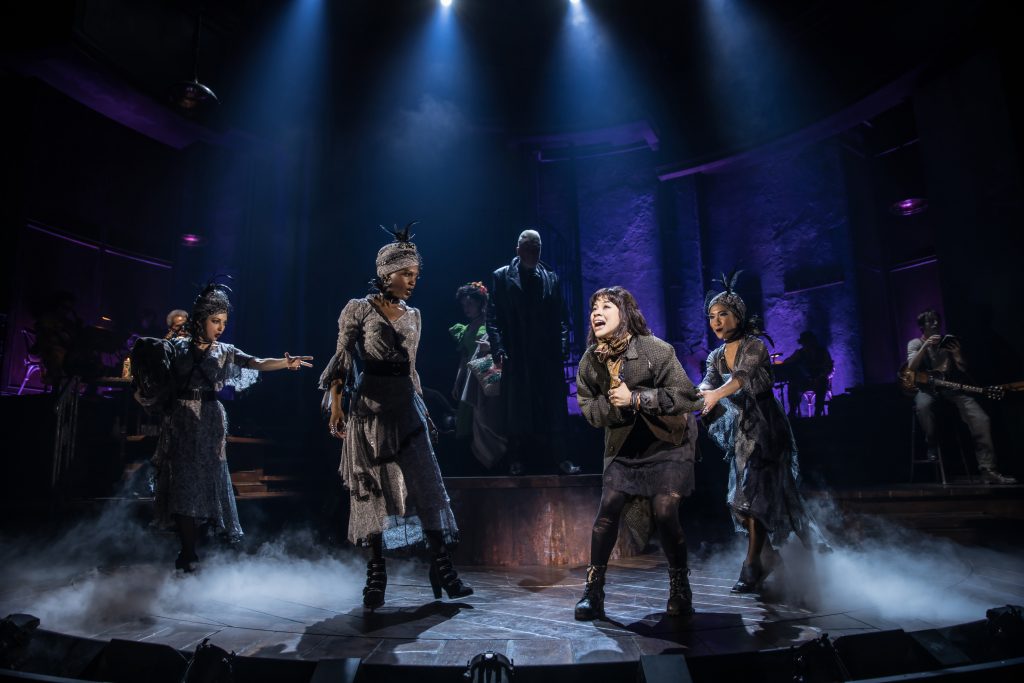
‘The Boys’ // PIP Theatre
‘The Boys’ was hard-hitting.
Tucked in between the restaurants and bars of Milton, PIP Theatre is transformed into a less classy suburbian Australia as they welcome audiences into the world of ‘The Boys’. Upon entry, a thrust stage paired with pre-show rock tunes immediately immerses audiences within a suburban landscape that, like some of the central themes of the piece, is all too familiar.
‘The Boys’ follows the Sprague family, as eldest son Brett is released from jail and reunited with his mum Sandra and brothers, Glenn and Stevie. However, life on the outside has not remained stagnant in Brett’s absence and he soon discovers Glenn’s moved out and Stevie’s about to be a dad. In an effort to regain control over his life, Brett weaponises masculinity and manipulation with alcohol only adding fuel to the fire. As the Sprague brothers are swept into a toxic sense of superiority, dangerous decisions are made, leaving the women of their lives to face hard truths about the men they know.
First published in 1994, this non-linear narrative remains highly relevant today as it explores topics of domestic violence, sexism and toxic masculinity. PIP Theatre’s production does not shy from these dark themes, proudly partnering with Micah Projects, a domestic violence service to share this true crime story and shed light on these matters.
Timothy James’ lighting design mostly follows a simple but highly effective day and night-like formula. The simplicity lent itself to the gritty realism of the piece and in turn, made moments of intensity, such as the slow fade-in of red during the peak of the play, all the more effective. This was beautifully supported by Katie Swan’s sound design that filled the space with the distant noises of suburbia, whether it be a bird tweeting or a car passing by. The use of sound effects further grounded the piece in realism, refusing the opportunity for this piece to be disregarded as mere fiction. Additionally, working in perfect harmony with James’ lighting, Swan introduced a soft drone to particularly tense moments that alongside the harrowing dialogue and action on stage left a feeling of sickness deep within the stomach. The show maintained a driving energy throughout every scene, and only during the blackout transitions was momentum lost.
Set and costume design by Genevieve Ganner allowed the stage to be transformed into the living room of an old Queenslander with a backyard littered with beer cans and various pieces of rubbish. Ganner’s eye for detail continued the dedication to realism, forcing audiences to recognise scenes, which may occur in our own backyards. Ganner’s costumes continued this theme and drew emphasis towards the overt Australian masculinity of the characters as they donned rubber thongs and button-ups. In particular, the attention to Glenn’s costuming was a clever detail, as his shirt unbuttoned and his appearance became more dishevelled the deeper he fell back into his brother’s antics. The technical elements of this show melded together smoothly with a clear focus. This drew attention to the moralities of masculinity, letting each moment hit truthfully hard as the story unravelled.
This truthfulness was a feat that was well achieved through Cienda McNamara’s direction. McNamara has clearly worked closely with the actors, particularly in their relationship work as a believable family dynamic unfolded on stage. With a well-rounded use of the space, McNamara’s blocking was naturalistic but clever with clear power dynamics being displayed in various scenes. Additionally, it can be assumed that a substantial amount of voice work was done, as actors well and truly leaned into the Occa Australian accent. This choice lent itself well to the production, highlighting again the closeness of this story to our own reality.
Taking on the role of the eldest brother, Brett, was Stephen Geronimos who completely embodied this troubling character. Geronimos’ portrayal was fiery and manipulative, adopting various tactics to get under the skin of his fellow characters and ultimately get his way. This manipulation completely flew over the head of Aidan O’Donnell’s Stevie, as O’Donnell brought a youthful naivety to the character. Full of energy, O’Donnell’s big eyes and rough playful nature highlighted his character’s idolisation of his eldest brother, whilst also displaying the dangers that lie beneath the disguise of immaturity.
Rounding out the three brothers was Samuel Valentine’s Glenn. Valentine’s trajectory throughout the show left your heart sinking into your stomach as he gave his character depth in his struggle between family and love. Watching his character eventually abandon his sense of maturity and respect after countless attacks from his brothers was difficult to watch, but also impossible to take your eyes away from. Geronimos, Valentine and O’Donnell worked together incredibly well, responding and rebounding off one another to create a boys’ gang that became increasingly more disturbing as the narrative progressed.
Playing opposite the boys were Zoe Houghton, Chantal Elyse and Leela Rashid as Michelle, Jackie and Nola respectively. Houghton’s portrayal of Michelle matched Brett’s fiery nature but unlike her partner, she also displayed a more sensitive side; sarcastic and quick-witted but also loyal and caring, Houghton’s performance was well-balanced. A great deal of Houghton’s snide quips were directed at Elyse’s Jackie, who took these on the chin without shame. Elyse brought a proud presence to the stage and it was heartbreaking to see her sense of pride slowly chip away as the show progressed. Contrasting Elyse’s strong presence, Rashid’s portrayal of Nola was small and timid. Seeing Rashid slowly gain more self-assuredness after the birth of her character’s baby was deeply satisfying, especially as she determinedly swore her child had no resemblance to his father.
Rounding out this cast was Deidre Grace in the role of Sandra, the mother of the Sprague household. Grace embodied this character with a frail physicality and blind faith in her sons. She handled her character’s descent into illness gracefully with a subtlety that was tragic to watch.
‘The Boys’ is a chilling tale of violence, toxic masculinity and family. The cast and crew of this production worked seamlessly to create a reflection of reality that draws attention to the horrors of domestic violence and sexualisation of women. Entirely relevant and completely harrowing, audiences are guaranteed to leave the theatre with an awareness of these issues and a desire for change.
‘The Boys’ performs until Saturday, 22 October 2022 at PIP Theatre. For more information, PIP Theatre’s website.








